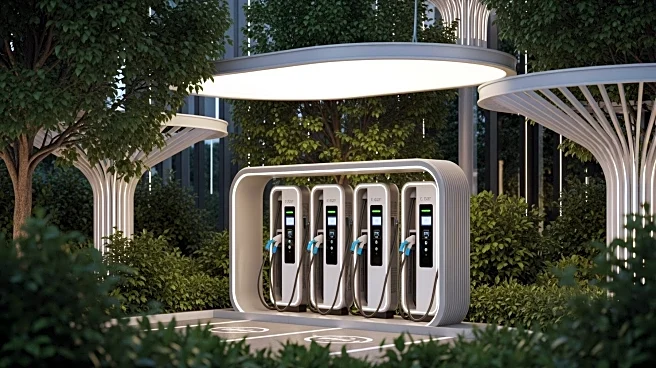What's Happening?
As infrastructure projects accelerate across various industries, fleet operations have become increasingly critical. Organizations are now relying on vehicles that can adapt to evolving jobsite, supply
chain, and regulatory demands. In a market characterized by volatility and OEM shortages, traditional fleet specifications and single-source loyalty are proving unsustainable. Instead, successful fleets are adopting strategic adaptability as their competitive advantage. This involves sourcing from multiple OEMs, adjusting vehicle classes, diversifying ordering channels, and rethinking specifications to align with real jobsite conditions. Such flexibility not only supports decarbonization and lifecycle cost management but also ensures project continuity.
Why It's Important?
The shift towards flexible fleet strategies is significant for several reasons. Firstly, it allows organizations to mitigate risks associated with supply chain disruptions and OEM shortages, ensuring continuity in operations. Secondly, by diversifying across OEMs and vehicle classes, fleet managers can integrate electric or hybrid models, supporting long-term sustainability goals. This adaptability is crucial as industries move towards decarbonization. Additionally, flexible sourcing strategies can reduce total cost of ownership by factoring in business continuity, project uptime, and reduced downtime, rather than focusing solely on purchase price, fuel, and maintenance. This holistic approach is essential for maintaining productivity and avoiding delays in infrastructure projects.
What's Next?
Fleet operators are likely to continue embracing flexible strategies to navigate the challenges posed by supply chain volatility and regulatory changes. As the industry shifts towards decarbonization, there will be an increased focus on integrating electric and hybrid vehicles into fleets. This transition will require fleet managers to continuously adapt their sourcing strategies to ensure operational readiness while meeting sustainability goals. Furthermore, organizations may explore new technologies and partnerships to enhance fleet resilience and efficiency. The ongoing evolution of fleet management practices will play a crucial role in supporting infrastructure development and achieving cleaner, future-ready fleets.
Beyond the Headlines
The adoption of flexible fleet strategies may have broader implications for the transportation industry. It could lead to increased collaboration between fleet operators and OEMs to develop innovative solutions that address supply chain challenges and support sustainability goals. Additionally, the focus on adaptability may drive advancements in vehicle technology, including the development of more efficient and versatile models. This shift could also influence regulatory policies, encouraging the adoption of practices that promote resilience and sustainability in fleet operations. Ultimately, the move towards flexible strategies may contribute to a more sustainable and efficient transportation ecosystem.









